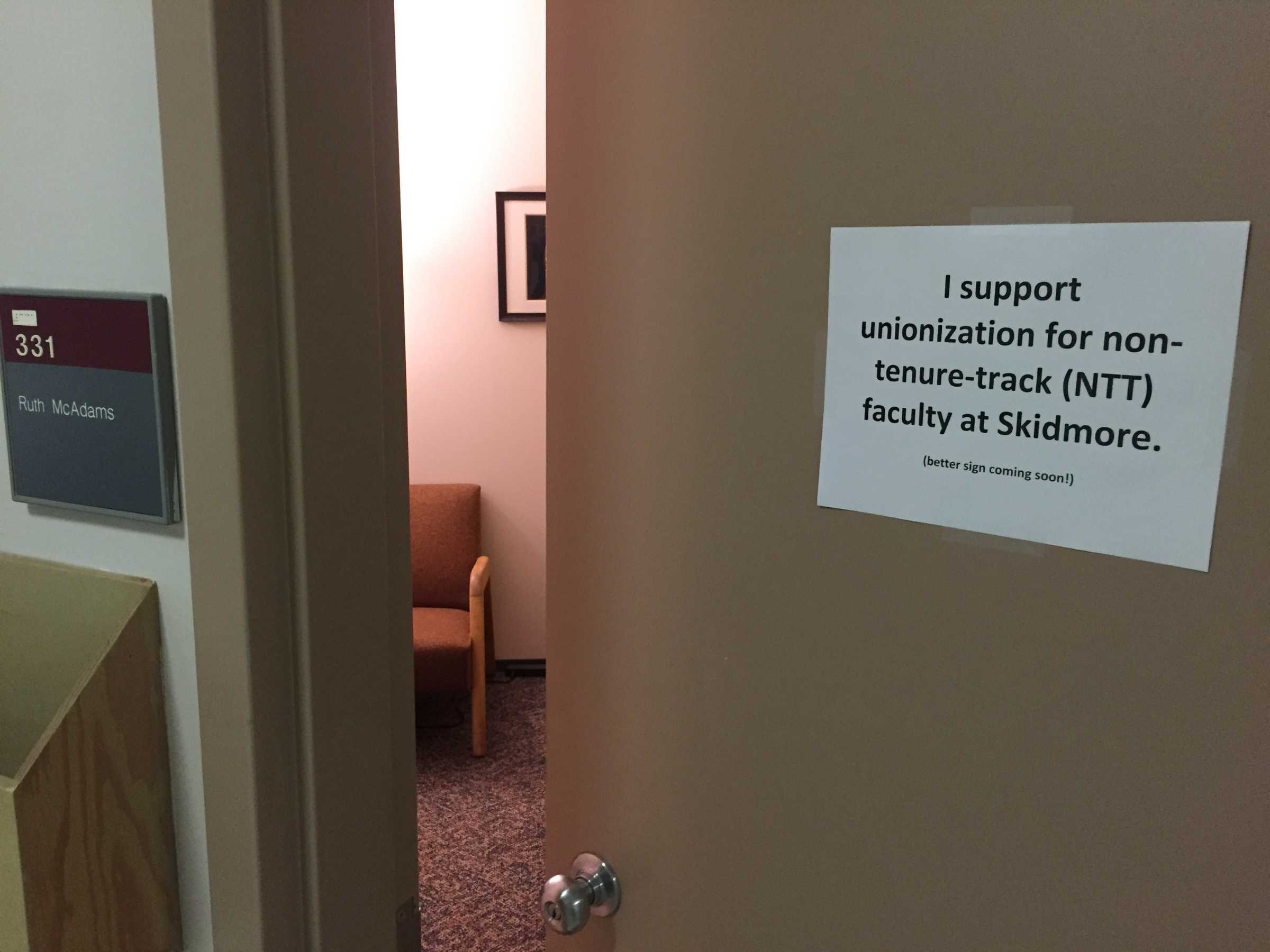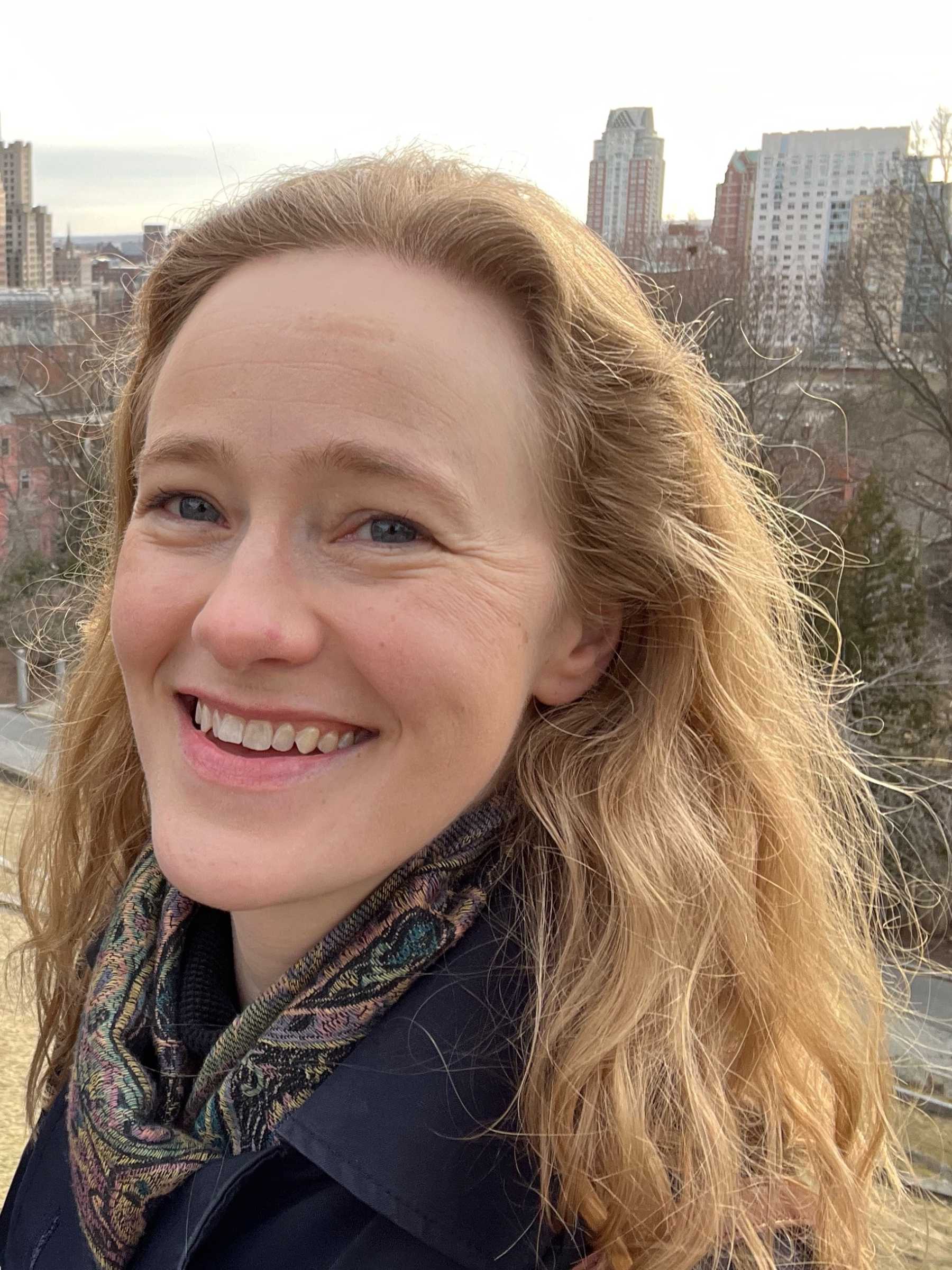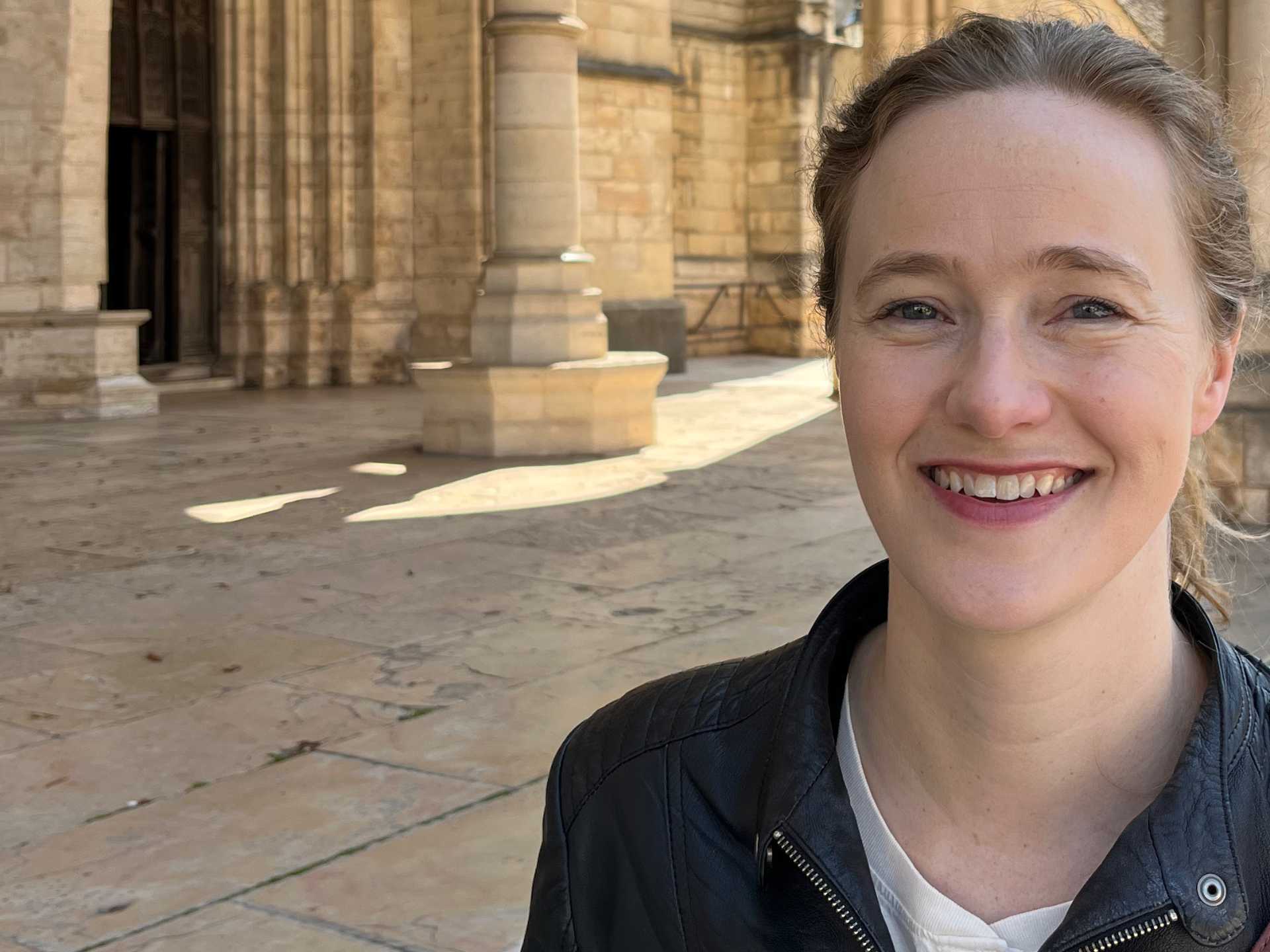Academia was always the dream for Ruth McAdams, but her perspective has shifted over the years as she advanced in her career as an English Literature professor and author. The Thouron Award seeks out those who have multiple areas of interest that make them unique future leaders who will have a great impact. Ruth has found her own way to achieve this without living with the wool pulled over her eyes. Her story is a good read.
In 2006, when Ruth graduated from the University of Pennsylvania with her bachelor’s degree in English and minors in Music and German, she wasn’t sure what was next. With multiple applications pending with several fellowships, going abroad seemed like the next best step for the budding writer and oboist. Unfortunately, or fortunately depending on your view of a water-filled glass, Ruth was only invited to interview for one fellowship: The Thouron Award.
“I remember it being a distracted and stressful period for me as I was struggling to figure out my next steps in life,” Ruth recalls. Unlike many of her fellow Penn students, Ruth had never studied abroad and wasn’t sure how to make it a reality, nor did she know anything about the options available to her. “I totally lucked out when I got the Thouron,” she admits.

With Youth Comes Discovery
With the support of the Thouron Award, Ruth was able to study at the University of Edinburgh. She studied in the MPhil English Literature programme.
“I chose a two-year research-based masters programme, which in retrospect was an unusual choice since most American students at Edinburgh did one-year taught masters programmes instead,” Ruth shares. This meant that rather than having a rushed academic experience, Ruth had plenty of time and flexibility, met regularly with her advisor, and could move through long reading lists with ease.
“It was an independent lifestyle that ultimately suited me, but it was a huge change from the frenetic, 24/7 pace of being a senior at Penn. I was a little lonely during that time…because I wasn’t taking classes, it was initially hard to meet people,” Ruth recalls. However, she managed to make friends with PhD students in her programme and then her strengths with the oboe paid off too. “In fact, it was playing music that made my time in Edinburgh so special. There were a lot of amateur classical musicians, but not a lot of oboists, so I was in high demand,” Ruth states.
What could have been a common experience for many students who study abroad, with no close access to friends, family, or their culture, was not a problem for Ruth. She even managed to land paid gigs and play in performances across Scotland during her time in Edinburgh.

Time & Space Before the Awakening
“At Edinburgh, I wrote a masters thesis on the posthumous editions of Walter Scott’s Waverley Novels. During the 2008–2009 year, I continued living in Edinburgh, where I taught and worked as a research assistant,” Ruth shares. With her return to the States, she began her PhD in English Language and Literature the fall of 2009 at the University of Michigan. Ruth’s travels and experiences as a Thouron Scholar stood out to many, particularly her new friends in the PhD programme. They found Ruth’s experience positioned her more desirably professionally since she had completed a master’s programme abroad before beginning her doctoral programme.
But Ruth was skeptical. “I think that the real value was more to me personally, in that it gave me three years to relax a little and gain some perspective on the world before launching into another rigorous and competitive academic environment,” Ruth professes. In 2015, when she graduated with her specialty in Victorian Literature, something was calling Ruth to return abroad again. This time, the untraditional route would take her to Turkey. During the 2016–2017 academic year, Ruth taught at Boğaziçi University in Istanbul.
“I applied for a job in their Humanities Programme on a whim — I was applying for a lot of jobs at that time. I was very surprised to be asked for an interview, and then even more surprised to be offered the job,” Ruth shares. It proved a wonderful and unique teaching experience.
Her Turkish students were brilliant minds who Ruth found incredibly fun to work with. “I also had a great boss and a nice group of European and American colleagues. On the weekends we would go sightseeing around Turkey together. I was there in the months after an attempted military coup, so the political situation was tense, but it also meant that there were almost no foreign visitors,” Ruth recalls. While in Turkey, she learned a bit of the Turkish language which she continues to practise today with friends and by watching historical Turkish TV shows — a favourite being “Muhteşem Yüzyıl” (“Magnificent Century”).

Disillusionment Sparks a Union
“Ever since I was 18, I always wanted to be an academic — it was my dream. Now that I am one, I have a somewhat more nuanced sense of what this profession means and does,” Ruth admits. As a non-tenure-track (NTT) faculty member since 2017 at Skidmore College, Ruth has ended up in a different place than she imagined years ago.
“When I was first finishing up my PhD, I hoped to get a tenure-track job, since those jobs are still the gold standard in terms of academic employment. But it never happened for me. Or rather, I never got a tenure track job offer that seemed worth taking,” Ruth discloses. Much of academic employment is rife with incredibly low pay, locations that aren’t desirable for quality of life, and unfortunately, this is normalised in academe. “Initially, I felt a lot of shame about my failure to find a great job, but over time I became radicalised by seeing how academia relies on low-paid gig workers to do the majority of its work,” Ruth reveals.
To date, nearly all academic institutions, including the prestigious ones like Penn, have chosen to employ large numbers of contingent faculty without providing them with the same job security or the academic freedom tenured professors receive. The struggle to make ends meet can be burdensome on these faculty members, who, like their tenured colleagues, also are brilliant scholars with great skill to offer.
“That’s what led me to become one of the lead organisers of the campaign to unionise the non-tenure-track faculty at Skidmore. It was a long road… In order to avoid endangering ourselves by alerting the employer and to form a strong community network, the process entailed an infinite series of one-on-one meetings with colleagues in which we had difficult, emotional conversations about the most intimate details of our economic and professional lives,” Ruth expresses. With the pandemic and high turnover of NTT faculty, the unionisers thought they would never see change. Yet in May 2022, Ruth and those courageous enough to move forward had all the signatures required to go public with their campaign.
“That set off some legal wrangling with the College, but they eventually consented to an election in the fall. We voted to unionise in September 2022. Seeing the victory secured was one of the best moments of my life,” Ruth proudly shares.

More Chapters to Come
Her involvement in the unionisation campaign was extremely fulfilling, despite the hardships. “I helped lead a unionisation campaign because of the exploitative labour practices at my workplace, and indeed, across the profession. The issues that I have with academia relate to its business model and are structural problems that I very probably would have encountered in another form if I had pursued a different line of work. The root issue here is unregulated capitalism,” Ruth observes.
A scholar and academic cannot leave behind their passion. While teaching at Skidmore, Ruth also continues to pursue her research in Victorian Literature. With several published articles in the area, Ruth has a book manuscript under contract with Edinburgh University Press. “My book challenges the scholarly consensus that Victorian writers were committed to the idea that history was inexorably progressing toward a better and happier state,” Ruth shares.
The book analyses novels and autobiographies by Benjamin Disraeli, William Makepeace Thackery, Thomas Hardy, and Harriette Wilson. During her free time, Ruth spends time playing the oboe, listening to classical music, expanding on her German, and running in the Adirondacks.
Without the Thouron Award, who knows how Ruth’s journey to becoming an English Lit professor and unioniser would have gone. “It wouldn’t have been possible financially for me to go abroad without the Thouron Award. It allowed me to focus on my studies, and to spend my free time playing the oboe in the Edinburgh University orchestra,” Ruth reminisces.
As for the Thouron Award, she believes it’s a valuable programme that makes it less difficult to leave the country where you live, even if that time away is temporary. “I don’t think that anything could have or should have stopped me from pursuing academia, and I’m happy that I did,” Ruth asserts.
Are you interested in becoming a Thouron Scholar?
Our application cycle for the 2025–2026 academic year will open later this year. Learn more about the Thouron Award — one of the most prestigious and generous academic scholarships in the world.

